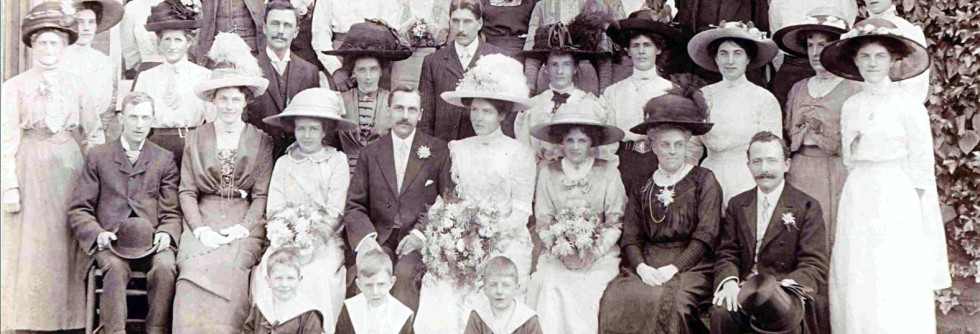
Bridget Surdival: From Mayo to Brooklyn by Ellen Maki, Ph.D.
When the White Star Line’s SS Germanic sailed out of Queenstown (now Cobh, Co. Cork), Ireland on 14 April 1898, there were many young Irish men and women aboard, including 19-year-old Bridget Surdival. The ship was headed for the port of New York, and Bridget was going to join her older sister, Mary, who was living in Brooklyn.

Bridget was born in 1876 in Balla, Co. Mayo, Ireland, to parents John Surdival and Bridget Reilly. She was the youngest sister of my great-grandfather Patrick Surdival (a.k.a. Patrick Sullivan). Although her name was registered as Biddy, she used the names Bridget, Beatrice, and Beattie.… Continue reading


 Have you discovered a gardener in your family? Perhaps, like me, you have come across one or more ancestors noted in the census records as gardeners, horticulturalists, or nurserymen. Some, like
Have you discovered a gardener in your family? Perhaps, like me, you have come across one or more ancestors noted in the census records as gardeners, horticulturalists, or nurserymen. Some, like 
 Eighty-four years ago today, on 4 September 1932, great-uncle Walter Clarke died in Palgrave, Suffolk, England at the age of 71. He was a public-spirited man, and his death was therefore felt not only by family, but by his community as well. The Diss Express for 9 September 1932 carried a report of Uncle Walter’s death that included many details of his public service.
Eighty-four years ago today, on 4 September 1932, great-uncle Walter Clarke died in Palgrave, Suffolk, England at the age of 71. He was a public-spirited man, and his death was therefore felt not only by family, but by his community as well. The Diss Express for 9 September 1932 carried a report of Uncle Walter’s death that included many details of his public service.




 When Britain entered World War I in August 1914, William Henton was a young man of 23, newly married and with an infant son, living in St. Helens, Lancashire, England. With newspapers publishing appeals to join the armed services, hundreds of thousands of men joined within just a few months, and William was one of them. On 4 September 1914, William joined the ranks of the South Lancashire Regiment, 7th Battalion.
When Britain entered World War I in August 1914, William Henton was a young man of 23, newly married and with an infant son, living in St. Helens, Lancashire, England. With newspapers publishing appeals to join the armed services, hundreds of thousands of men joined within just a few months, and William was one of them. On 4 September 1914, William joined the ranks of the South Lancashire Regiment, 7th Battalion.
